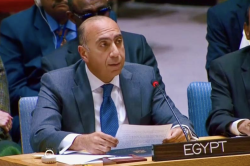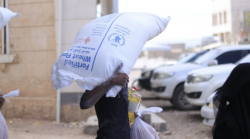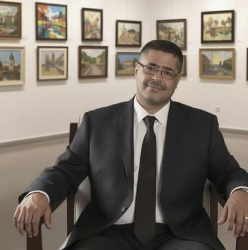Ukraine: Impossible choices for surrogate mothers and parents
- 2022-03-22 02:04:52


 Pierre Rayer: Art, Science, and Happiness: The Universal Mission of Transmission to Future Generations through Patronage at the Louvre Abu Dhabi
Pierre Rayer: Art, Science, and Happiness: The Universal Mission of Transmission to Future Generations through Patronage at the Louvre Abu Dhabi Ahly crowned Super champions after dramatic extra-time win over Modern Future FC
Ahly crowned Super champions after dramatic extra-time win over Modern Future FC Yemeni Honey..A Development Wealth Threatened By Conflict And Climate Change
Yemeni Honey..A Development Wealth Threatened By Conflict And Climate Change California wildfires: Millions warned of possible power cut
California wildfires: Millions warned of possible power cut Central African rebels launch attacks near capital
Central African rebels launch attacks near capital Yemeni Parties Reach New Agreement on Prisoner Exchange
Yemeni Parties Reach New Agreement on Prisoner Exchange Breaching Sudan sovereignty 'red lines' threatens Egypt national security: Egypt at UNSC
Breaching Sudan sovereignty 'red lines' threatens Egypt national security: Egypt at UNSC Suez Canal expects return to normal traffic by mid-2026 as Maersk, CMA CGM return
Suez Canal expects return to normal traffic by mid-2026 as Maersk, CMA CGM return Yemen : WFP Maintains Suspension of Operations in Houthi-Controlled Areas
Yemen : WFP Maintains Suspension of Operations in Houthi-Controlled Areas Yemeni Artist Sells Paintings to Pay Overdue Rent
Yemeni Artist Sells Paintings to Pay Overdue Rent
